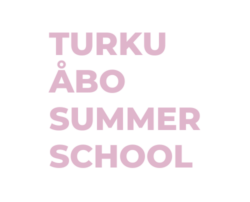Social Change in a Digital Age
Digital media has revolutionized how we communicate, organize, and act in society. This mediatization of society, and how it relates to social change, is the starting point for this course in media sociology. Social change refers to changes in social forms, processes, and structure. It relates to everyday communication, social movements, activism, e-governance and participation. In this Turku Åbo Summer School course, you will gain insight into the interrelation between the use of digital media and social change and get tools to understand and engage in a changing society.

- Teaching period: 1 – 31 August 2025
- Contact teaching in Turku 4 – 15 August 2025
- Credits: 5 ECTS
- Course level: +2 years Bachelor's Degree studies
- Organizer: Åbo Akademi University
- Field of study: Social Sciences
- Course fee: 225 €
APPLY BY 17 APRIL 2025
The course will include lectures by guest speakers, peer-to-peer learning through dialogue, visits to exciting companies as well as other interactive teaching methods. Instead of a test, you will work in groups to produce an online anthology publication, consisting of individual papers linked by a common theme.
To give you a glimpse into how participants have been working together on the course you can have a look at this previous online publication: https://sites.google.com/view/digital-media-social-change/home-page
Learning outcomes
As a student you will be able to:
- Understand contemporary theories about social change, digital media and mediatization
- Learn to use different methods and tools for researching societal issues online
- Use these theories to analyze a current phenomenon
- Write texts that are based on theoretical perspectives and actual cases, but simultaneously accessible to anyone interested in the subject.
- Produce an online publication. The group publication is an anthology consisting of individual texts by participants and will be accessible through an open link after the course.
We will study theoretical perspectives on:
- Digital Society
- Social Media
- Communication Online
- Interaction and Identity
- Communities and Networks
They will be framed around the following themes:
- Digital Visuality and Visibility
- Feeling Digital (affect in digital media)
- Digital Citizenship
- Digital Power and Exploitation
- Digital Activism
- Mobile Culture
- Software, Algorithms and Data
As a student you will also learn about tools relating to:
- Collecting material online (not obligatory to use in publication)
- Processing data (not obligatory to use in publication)
- Referencing and linking online sources
Methods
Lectures, independent research, peer to peer learning, dialogues, project work in groups, presentation of online publication.
The day is structured so that we have lectures in the morning and groupwork, workshops, visits, or dialogues in the afternoon. During the workshop periods, students will be encouraged (voluntary) to share about digital media tools or practices they know about.
Date
1 August – 30 August. Contact teaching in Turku 4-15 August 2025. The start and finish of the course is completed online.

Åbo Akademi University
Robin Lybeck
Robin Lybeck has a Master’s degree in Social Sciences and is a PhD student in Sociology. You can find his publications here: https://research.abo.fi/sv/persons/robin-lybeck
Place: Mainly in Turku, but includes also online studying.
Undergraduate students with at least two years completed of Bachelor’s studies in social sciences, humanities, or related subjects. If you do not fill these requirements but feel that you have a basic understanding of theories about society and/or media and an interest to learn more, please contact the teacher to discuss the possibility to participate in the course.
Pre-task 35 h, self-studies 30 h, lectures and mentoring 20 h, project work in groups 50 h = 135 h
Literature:
Selected chapters from:
- Lindgren, Simon. 2021. Digital Media and Society. SAGE Publications Ltd.
- Marres, Noortje. 2017. Digital Sociology. 1st ed. Wiley.
Lecture materials, webpages, videos
Grading 1-5
Max. 25 students
